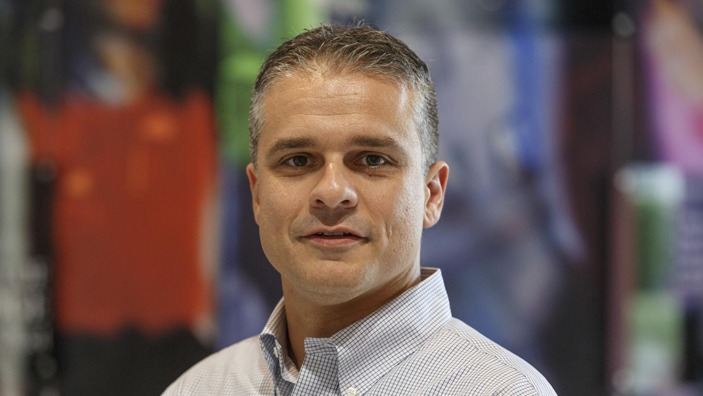Two articles by Cambridge Judge Business School faculty, on helping employees in distress and on strategic innovation, appear in the September-October 2023 print edition of Harvard Business Review.
An article entitled “Helping an employee in distress”, part of a spotlight on mental health in the new HBR issue, is authored by Kiran Bhatti, a counselling psychologist in Cambridge, associated with Wolfson College, and by Thomas Roulet, the incoming Professor of Organisational Sociology and Leadership at Cambridge Judge.
Training managers to use cognitive behavioural therapy (CBT)

The article details how few managers receive any training for dealing with mental health crises in the workplace, despite the added stress of the pandemic and economic uncertainty. So the authors outline the basic tools of cognitive behavioural therapy (CBT), which focuses on the connection between emotions, physical sensations and behaviours, which managers can use to address emotional distress and negative behavioural patterns among employees.
“Fortunately, the principles of frontline intervention are not as complex as one might think and can be readily learned by non-clinicians,” the article says.
Post-pandemic, mental health is as important as physical fitness
“Taking care of mental health in the workplace is as crucial as managing physical health – especially in today’s post-pandemic environment, when most employees are suffering from some form of anxiety or stress. Like having a first aid kit for physical emergencies, mental-health first aid should be a standard tool at every manager’s disposal.”
In an introduction entitled “The ever-expanding job of managers”, the editor in chief of Harvard Business Review, Adi Ignatius, says: “It may seem unfair to expect leaders to be first responders when mental health crises arise in the workplace while they must also adapt to hybrid work, identify the risks and opportunities of generative AI, and search for new sources of growth in a tough economy. But the business landscape is changing, and smart managers need to equip themselves to succeed in the new world.”
Innovation tool kit helps executives align investments with strategy

A separate HBR article authored by 3 Cambridge Judge academics entitled “A new approach to strategic innovation”, introduces a novel ‘innovation tool kit’ to help leaders better align their innovation investments with company strategy.
The article is authored by Haijian Si, a Business Doctorate candidate at Cambridge Judge and former CEO of several Chinese energy firms; Christoph Loch, Professor of Operations & Technology Management and former Director (Dean) at the Business School; and Stelios Kavadias, Margaret Thatcher Professor of Enterprise Studies in Innovation & Growth and Co-Director of the Entrepreneurship Centre at Cambridge Judge.
The innovation toolkit allows leaders to determine the changes required to achieve a certain strategy, translate the changes into innovation goals, and then create an ‘innovation basket’ that plots each project against these goals.
How the toolkit allow projects to shape strategy as well as to be moulded by it


“They can then cut projects that aren’t aligned and create new ones that are. It’s an iterative and creative process: projects are adjusted to fit the strategy but can also shape it,” says the article, which draws on examples from the authors’ research.
“We use the word ‘basket’ rather than ‘portfolio’ to denote a company’s collection of innovation projects,” say the authors. “In this way, we differentiate the concept from finance and avoid the mistake of treating projects like financial securities, where the goal is usually to maximise returns through diversification. It’s important to remember that innovation projects are creative acts, whereas investment in financial securities is simply the purchase of assets that have already been created.”
Concluding, the article says: “The innovation basket process not only helps managers implement strategy but also helps them shape it. It gives them a window into what their innovation activities are really doing for their strategy. The generic risk-reward criteria of traditional portfolio approaches are unlikely to generate much insight, and therefore do not stimulate the type of discussion top managers need to have.”
Two articles that showcase the scope of research at Cambridge Judge
The Vice Dean for Research and Impact at Cambridge Judge, Professor of Innovation and Organisation Paul Tracey, said the publication of 2 articles by Cambridge Judge academics in the same issue of HBR underlined both the depth and breadth of research at the School.
“Given its status and profound influence, Harvard Business Review sets a very high bar for business school academics, so Cambridge Judge is delighted to be represented by not one but 2 articles in the same issue of the magazine,” he said. “The subject matter represented by these 2 articles – employee welfare through effective management, and meeting strategic goals through innovation – reflect the wide range of expertise at the Business School.”
Featured faculty and students
Thomas Roulet
Professor of Organisational Sociology and Leadership
Christoph H Loch
Professor of Operations and Technology Management
Stelios Kavadias
Margaret Thatcher Professor of Enterprise Studies in Innovation and Growth
Haijian Si
Business Doctorate Candidate
Featured research
Bhatti, K. and Roulet, T. (2023) “Helping an employee in distress.” Harvard Business Review
Si, H., Loch, C. and Kavadias, S. (2023) “A new approach to strategic innovation.” Harvard Business Review
Related articles
Entrepreneurship and innovation
How LeanSpark turns scarcity into innovation at scale
The pioneering work on frugal innovation by Professor Jaideep Prabhu of Cambridge Judge Business School has evolved into the broader concept of LeanSpark, which outlines how scarcity can prompt lean and simple execution, scalability and sustainability.
AI and technology
Why AI’s role in the circular economy is deeply contested
Circularity may be popular with citizens, but when it comes to artificial intelligence, it becomes deeply divisive. Research co-authored by Shahzad Ansari of Cambridge Judge develops a framework to help find common ground based on purpose, strategy and governance regarding AI and circularity outcomes. The framework shows that debate about AI and circularity revolves around 3 questions: what AI is for, how circularity should be pursued and who gets to decide.
Behavioural economics
How common language on nudging can better steer behaviour
A lack of shared terminology has limited the application of behavioural interventions across disciplines. A holistic classification system developed at the El-Erian Institute of Behavioural Economics and Policy at Cambridge Judge Business School aims to help practitioners and academics alike.





